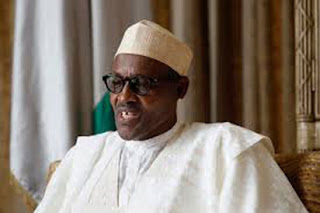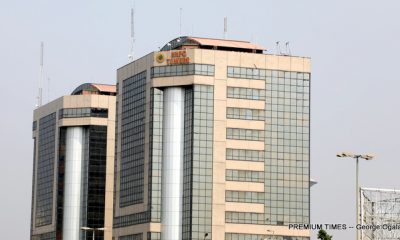Business
Will Dangote petrol bring relief to Nigerians?
Confusing signals are emanating from both the government and the Dangote Refinery concerning pump prices.
Punch Editorial Board
THE commencement of petrol production at the Dangote Refining and Petrochemicals complex in Lagos is a defining moment for Nigeria. However, the excitement that came with the announcement has been dampened. It coincided with a 66 per cent spike in petrol prices shortly after the highly indebted national oil company, the NNPC Ltd., admitted that it could no longer accommodate subsidies on imported petrol.
On September 3, the NNPC adjusted petrol pump prices by 66 per cent from N568 and N617 per litre to N855 and N897/l across regions. Independent marketers adjusted to between N900 and N1,200/l.
This new price template suggests an agreement between the Dangote Refinery and the Federal Government, which has agreed to sell crude oil in naira to the refinery, factoring in the elimination of other costs associated with petrol imports such as freight, insurance, port charges and taxes that had combined to peg the landing cost at N1,117 as of June according to the Major Energy Marketers Association of Nigeria.
This is a bitter pill that Nigerians have been made to swallow. It has triggered a backlash, and explanations remain fuzzy. The timing of the refinery’s first petrol flows after weeks of petrol scarcity that had pushed prices up to N1,500/l in the black market.
The subsequent official price hike, and NNPC’s decision to come clean on its estimated $6 billion debt to fuel suppliers after initial denials, give room for suspicions that the entire scenario was contrived to set the stage to end fuel subsidies.
READ ALSO: Presidential Committee, Dangote Refinery Agree On Sept Petrol Deadline
Nigeria Is Not Meant To Exist, A Collateral Damage And British Royal Niger Corporation -Burna Boy
The refiner has presented a perfect opportunity for the Bola Tinubu administration to correct the blunder of its “subsidy is gone” declaration, followed by the naira devaluation, which ironically resulted in higher subsidy payments.
Confusing signals are emanating from both the government and the Dangote Refinery concerning pump prices. The NNPC said prices would be determined by forex rates, and Dangote will be allowed to set petrol prices starting in October.
The refinery is committed to supplying 25 million litres per day this September, which will be ramped up to 30 million litres a day in October. This is almost half of local consumption, estimated at 66 million litres per day.
Nigerians are pitted between fuel availability and higher costs. It is not the relief that was expected with Dangote’s entry into the petrol market.
While the government is facing a severe backlash from stakeholders, including labour unions and members of the organised private sector over fears of further petrol price-induced inflation, and worsening of the cost-of-living crisis, the longer-term prospects of reliable fuel supplies, energy security and price stability could be a worthwhile trade-off.
However, the government must be transparent in its actions to gain public trust. The downstream petroleum sector is a cesspool of intrigues, avarice and dubious activities promoted by vested interests. Nigerians are also not convinced that any savings from the stoppage or reduction of fuel imports will be properly accounted for.
There is evidence to support the possibility of petrol prices trending downwards eventually. The Dangote Refinery had crashed diesel price to N1,000/l in April, down from N1,200 initially offered to fuel marketers weeks after the refinery started diesel production in January. This is much lower than the average of N1,700/l a month earlier. It also reduced the price of aviation turbine kerosene from N980 per litre to N940 in April.
The petrol market should be subject to competition to ensure fair prices. While NNPC executives have claimed that the deregulation of the petroleum sector, as stipulated by the Petroleum Industry Act 2021, has taken effect and petrol prices will be determined by unrestricted free market forces, an exclusive deal between Dangote and the NNPC does not suggest a competitive environment. The illiquid forex market will give the NNPC as a retailer a huge advantage over independent marketers who have been clamouring for access to Dangote petrol. This should not be allowed to be the norm.
Whatever pains the still unfolding scenario represents, the big picture of Dangote refinery kick-starting a new era of industrialisation for Nigeria cannot be overlooked
Situated on a site seven times the size of Victoria Island, the $20 billion complex is the largest single-train refinery in the world with a nameplate capacity of 650,000 bpd.
The superstructure is a testament to the vision and tenacity of Aliko Dangote, who has pulled off what the Federal Government has failed to do.
The refinery will end 28 years of fuel import dependency due to the grounding of the NNPC’s four refineries with a combined capacity of 445,000 bpd despite over $20 billion spent on maintenance. The country has a reprehensible distinction of being an oil producer that relies on fuel imports.
More significantly, its impact on the economy will be profound as Nigeria will save a significant portion of the $10 billion spent yearly on fuel imports. It will guarantee supplies that have been subject to frequent disruptions associated with importation by the NNPC.
On the macroeconomic level, the refinery’s potential contribution to Nigeria’s economic fortunes is significant. It provides huge opportunities for GDP growth, employment generation, technological advancements, and the creation of spin-off industries. The refinery has a Nelson complexity index of 10.5, meaning it is more complex than most refineries in the United States (average 9.5) or Europe (average 6.5).
Recent economic modelling suggests that the refinery could contribute approximately 2.5 per cent to Nigeria’s GDP. This estimation considers not only the direct revenues from the refinery’s operations but also the multiplier effects across the supply chain, including service providers, logistics, and other ancillary services that will see growth due to the refinery’s demands.
The refinery employs about 3,000 young Nigerian engineers who run its daily operations. It is estimated that the refinery will sustain 30,000 jobs from activities related to its operations and 100,000 more in spin-off industries and activities.
The refinery has opened a new vista of opportunities for the country’s industrial and manufacturing sectors with the production of a vast range of petrochemicals and raw materials including polypropylene, polyethene, base oil, and linear alkylbenzenes that will help boost many sectors, including agricultural, plastics, and packaging. Its fertiliser arm is already supplying urea to domestic and African markets.
It has effectively provided a high level of energy security for West Africa with the potential to deepen regional integration through common fuel markets.
This has the potential to stabilise the naira, rein in inflation and contain Nigeria’s need for continued borrowing.
Crucially, it provides proof of concept that Nigeria can be a destination for new large-scale, world-class, high-cost industrial projects, which could catalyse further foreign investment flows and open the space for more technology-driven industries.
Indeed, there are suggestions that by aligning economic policies to support the refinery and other similarly large projects coming up, the government could transform an industry-specific investment into a fulcrum for further economic development. It gives impetus for revamping Nigeria’s logistics infrastructure – rail, roads, and pipelines – to ease the movement of petroleum products.
The Tinubu administration should realise that Nigeria’s industrial future lies with private sector investors. Moribund projects such as Ajaokuta Steel and the Aluminium Smelter Company of Nigeria should be privatised with dispatch.
So, the NNPC must be privatised and run strictly as a profit-driven entity. This will provide an immediate cash injection into the economy, free the company from political encumbrances, guarantee transparency and efficiency in its operations, and significantly higher financial returns to the public treasury.
Business
As Nigerians Battle Pains Of Soaring Petrol Price
This is more than just about fuel; it’s about the larger picture of governance failure. The fact that a country as oil-rich as Nigeria can’t provide affordable fuel for its people is a tragedy.
BY IFEANYI MOGBOLU
The Daily Times-The latest fuel price hike in Nigeria is beyond frustrating. Every time we think it can’t get worse, it does, and yet again, ordinary Nigerians bear the brunt of it.
It’s like a never-ending cycle, where the government’s promises of reforms or stabilisation always end up as empty rhetoric. The cost of living is already sky-high, and now, with fuel prices rising again, transport fares, food prices, and basic commodities are bound to follow suit.
It’s enraging because it doesn’t feel like anyone is truly considering the everyday citizen who is struggling just to survive.
This is more than just about fuel; it’s about the larger picture of governance failure. The fact that a country as oil-rich as Nigeria can’t provide affordable fuel for its people is a tragedy. The subsidies are gone, and now we’re left in a situation where the prices of everything keep climbing, while salaries remain stagnant or non-existent for many.
The disparity between the elites and the masses is growing, and it feels like nobody in power truly cares about the suffering of the people.
READ ALSO: NNPC Lied About Pump Price, Our Fuel Is 15% Cheaper Than NNPCL’s Imported Ones — Dangote
Hardship: ‘Suspend All Policies Impoverishing Nigerians’, NASME Begs Tinubu
Naira Hits Six-month Low In Official FX Market, Prof. Steve Hanke Slams Tinubu
The anger isn’t just about fuel; it’s about the entire state of living. Nigerians are exhausted. There’s no sense of security; power supply is erratic, basic infrastructure is crumbling, and inflation is at an all-time high. How do we live like this? Every day is a battle to make ends meet, and the government seems utterly disconnected from the struggles on the ground.
It’s infuriating that while politicians and elites live in luxury, the rest of us are left scrambling for the bare minimum. The state of living is unbearable, and the lack of empathy or real action from those in power only adds salt to the wound.
There’s a deep sense of anger and betrayal that comes with seeing your country’s wealth mismanaged, while the people continue to suffer. It’s hard not to feel like we are constantly being taken for granted, pushed further into hardship without any hope of relief. Something has to give, because this state of affairs is unsustainable.
QUOTE:
The anger isn’t just about fuel; it’s about the entire state of living. Nigerians are exhausted. There’s no sense of security; power supply is erratic, basic infrastructure is crumbling, and inflation is at an all-time high. How do we live like this? Every day is a battle to make ends meet, and the government seems utterly disconnected from the struggles on the ground. It’s infuriating that while politicians and elites live in luxury, the rest of us are left scrambling for the bare minimum.
Business
Nigeria To Receive $5.600,000 From Bill Gates, For Health And Agricultural Reforms, GMOs
Alongside the activities surrounding the 79th United Nations General Assembly in New York, Vice President Kashim Shettima held a meeting with the Bill and Melinda Gates Foundation leading to the announcement of the donation by the Foundation’s head of Global Development.
Bill and Melinda Gates Foundation is giving Nigeria through Vice President Kashim Shettima, a $5.600,000 funds to speedy up health and agricultural reforms in favour of the GMOs in Nigeria, and flood relief.
Through the Foundation’s head of Global Development Programme, Dr Christopher Elias, Bill Gates pledged $5 million grant approved for Lagos Business School and partners to develop the agricultural economics they called “industrial cassava” and $600,000 for flood relief in Borno State and other health sector initiatives.
Alongside the activities surrounding the 79th United Nations General Assembly in New York, Vice President Kashim Shettima held a meeting with the Bill and Melinda Gates Foundation leading to the announcement of the donation by the Foundation’s head of Global Development.
Recall that on 4 September, Bill Gates had described the Nigeria’s economy as “stagnated” and proposed agricultural reforms for faster and increased growths in crops, fruits, vegetables amongst others to enhance nutritional values of the Nigerian citizens through the agricultural sector.
In that meeting Chaired by Vice President Kashim Shettima, Bill gates urged Nigeria to adopt “innovative crop varieties with shorter growing periods, higher yields, and better pest resistance” pointing to the GMOs to address the food crisis.
READ ALSO: Bill Gates, Anthony Fauci and conspiracy theories (part 2)
Nigeria’s economy stagnated – Bill Gates
Nigeria Is Not Meant To Exist, A Collateral Damage And British Royal Niger Corporation -Burna Boy
Moreover, at the 79th UN General Assembly in New York, VP Shettima reaffirmed to the Bill and Melinda Gates Foundation, the commitment of the administration of President Bola Ahmed Tinubu prioritizing health, nutrition, and agricultural development in Nigeria’s national agenda.
In a statement by Senior Special Assistant to the President on Media and Communications, Office of the Vice President, Stanley Nkwocha, Shettima said: “we are deeply committed to addressing the pressing developmental challenges facing our nation, particularly the significant malnutrition crisis”.
He emphasised the Federal Government’s dedication and urgently working to secure locations for maize production under the Telemaze programme.
VP Shettima, promising swift action to the Gate’s Foundation on import permits for certified seeds, the VP said, “We recognize the critical importance of food security and industrial agricultural development. The Cassava Accelerator programme, in particular, holds immense potential for our economy.
“We are pursuing a whole-of-government approach to digitisation and data exchange systems, which we believe will revolutionise our public services,” he added while reiterating the government’s focus and commitment to digital transformation.
“With the expertise” of Nigeria’s ministers, “and the continued support of partners like the Gates Foundation,” the nation remains confident in its “ability to drive meaningful change and improve the lives of all Nigerians.”
In his response, President of the Global Development Programme at the Gates Foundation, Dr. Christopher Elias, said the Foundation is burdened with worries of the severe flooding in Borno, and is “committed to supporting Nigeria in times of crisis.”
Speaking of Polio, the Foundation said, “We’re impressed by the national task force’s efforts to eliminate variant polioviruses by year-end,” Dr. Elias noted.
Also, President of Global Growth & Opportunity Division at the Bill & Melinda Gates Foundation, Rodger Voorhies, detailed plans for scaling up drought-tolerant maize production and advancing the Nigeria Cassava Investment Accelerator programme emphasizing that a $5 million grant has been approved for Lagos Business School and partners to develop the agricultural economics of industrial cassava.
In his words, “Industrial cassava presents a multi-billion-dollar opportunity for Nigeria,” Voorhees stressed.
He requested import permits for 5,000 metric tons of certified GMO maize seed to build a foundation seed system in Nigeria.
Business
Managing, Leading, Building Institutions And Sustainability
The two primary tasks of a top-level leader are to exploit and explore the organisation with people for now and in the future.
By Babs Olugbemi
One of my concerns for leaders is their capacity to be ambidextrous. Regardless of years of experience, knowledge, and leadership capacity, the lack of a clear distinction between managing and leading on the one hand, leading and building institutions on the second layer, and ultimately focussing on sustainability is a significant threat to successful leadership change.
I have followed events and people at C-suites, coached some, and developed frameworks for leadership development. Based on the personalities and styles of the new leaders, I have confirmed my fears about leadership sustainability in most African organisations.
“Successful leaders can aptly differentiate themselves and their roles without necessarily seeing activities as performance, focussing on what is required of them with appropriate tenacity and influence.”
The challenge for leaders is how to lead for the present and future without losing sight of the stakeholders’ immediate performance expectations. Successful leaders can aptly differentiate themselves and their roles without necessarily seeing activities as performance, focussing on what is required of them with appropriate tenacity and influence.
READ ALSO: Leadership, not God responsible for Africa’s poverty
Afrocentric colonialism: The new face of African oppression
Health: Genotype And Compatibility, Phenotype, Blood Groups And DNA
In my walk as a leadership coach, I have keenly observed leaders who are managing rather than leading. Managing involves ensuring that processes achieve their intended outcomes. Leaders are above managing and should focus on creating an enabling environment for innovation, inventions, and team collaboration. The primary role in leading is not to monitor process outcomes, though critical to the company’s overall objectives, but to align corporate values with the people’s aspirations to create an engaged and ownership-thinking mindset ready to take on challenges and explore opportunities. An alignment of corporate and personal goals will not only deliver the present performance expectations. Still, it will also incubate innovations to adapt to future market demands and the sustainability of the business.
Unfortunately, the capacity for ambidexterity is rare and often marked by leaders’ exposure, approach and styles, perception, and perspective of their roles in the organisation. A leader with a wrong foundation in these areas is set for failure and awaits unfavourable decisions from the board of directors. A top-level leader might manage their teams instead of leading them. Not all leaders can combine leading for the present with building institutions. However, anyone able to submit themselves to an institution-building mechanism can champion sustainability. Aside from being a leadership coach, I help leaders achieve sustainability.
Mathematically, creating an ambidextrous organisation is beyond leading. It is to lead and build an institution that focuses on sustainability in all aspects of the organisation—employee fulfilment, customer retention, strategy effectiveness, performance evaluation, stakeholder management, process improvement, and goal congruence.
In a nutshell, the role of successful leaders in ambidextrous organisations is striking a balance between exploiting current assets and capabilities to ensure short-term success and allocating enough energy and resources to exploration to ensure future viability. The two primary tasks of a top-level leader are to exploit and explore the organisation with people for now and in the future. The two seemingly contradictory aspects—exploitation and exploration—encompass different strategies and processes and have different targets and outcomes (March 1991; O’Reilly & Tushman, 2004; O’Reilly & Tushman, 2013).
O’Reilly and Tushman described the two concepts as follows:
- Exploiting: Exploiting involves building on an organisation’s achievements and maximising returns on previous investments. It focuses on responding to current business demands to remain efficient and competitive within an established market niche, as well as on maintaining an existing customer base and stakeholder relationships. Examples of exploiting are activities focused on continuous improvement, benchmarking, and redesigning business processes.
- Exploring: Exploring focuses on expanding an organisation’s knowledge and capabilities, pioneering new products and services, and discovering and venturing into untapped markets.
The common area of practical bottlenecks in exploiting and exploring in organisations is a need for foundational trust and cohesion among the resources, especially the human capital, which are often treated as costs rather than assets to the organisations. Among all the factors of production, only humans can be ambidextrous with the capacity to think about changes in economic parameters and adjust their behaviours to match the time, content, and contextual requirements.
While organisations might have the resources to deploy in fighting competition, technology to obtain first-mover advantages, and production capacity to maximise output from input, none is compared with the potential of an engaged workforce.
Therefore, for leaders to be successful, they must refrain from operating in the realm of managing. They should operate in the capacity of institution builders, with the mindset of creating sustainable leadership and growth with people first and other factors of production second.
Consequently, only the leaders who prioritise their people over profits, pride, and organisational arrogance will be successful in the long term.
-

 News5 years ago
News5 years ago$800m oil fraud: resign as Petroleum Minister – Frank tells Buhari, asks for probe
-

 Biafra5 years ago
Biafra5 years agoPROPHECY: Powerful Prophecies for Mazi Nnamdi Kanu and Chief John Nnia Nwodo by Pst. Maxwell Nnawuihe (Text & Video)
-

 Biafra5 years ago
Biafra5 years agoBREAKING: Dragon Flag Can’t Come Down, You Must Allow Our Brave Men To Do Their Job – Nnamdi Kanu
-

 Business8 years ago
Business8 years agoNEWS PAPER HEADLINES FOR TODAY THURSDAY 28 SEPT 2017
-

 Business4 years ago
Business4 years agoFUEL: PPPRA removes new petrol price post as NNPC insists no hike
-

 Business7 years ago
Business7 years agoSuspected Fulani militia kill two in fresh Taraba attacks
-

 Biafra5 years ago
Biafra5 years agoVIDEO: Powerful Prophecies for Mazi Nnamdi Kanu and Chief John Nnia Nwodo by Pastor Maxwell Nnawuihe
-

 News6 years ago
News6 years agoA fatal accident along Benin/Auchi express way has claimed the lives of an entire family while traveling for Christmas.